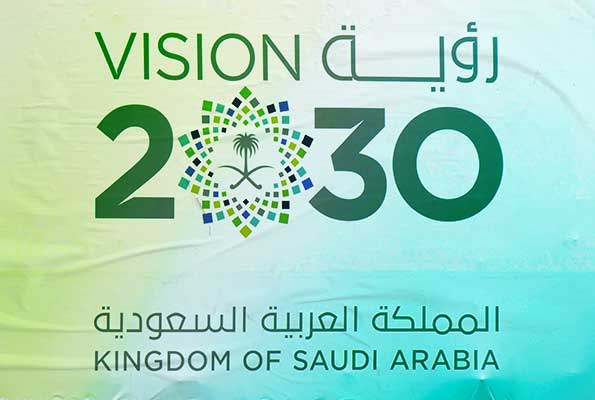As part of Saudi Arabia’s Vision 2030, the role of expatriates in the country is an essential aspect of achieving the nation’s goals and objectives. Vision 2030 is a strategic framework launched by the Saudi government in 2016 to diversify the economy, reduce dependence on oil revenue, and transform the country into a global investment powerhouse.
Expatriates play a significant role in various sectors and areas of Saudi Arabia’s development, and their contributions are crucial for the successful implementation of Vision 2030. They bring expertise in fields such as engineering, technology, healthcare, finance, and education, filling skill gaps and supporting the development of the country’s human capital. There are 32 million people in Saudi Arabia of which 13 million (above 40%) are expats.
Since the inception of the Nitaqat program, which is regarded as the core of all Saudisation initiatives, a wide range of modifications have been made in order to improve the program and promote the hiring of Saudi citizens. What effect has Saudisation had on businesses’ ability to employ foreign nationals in the Kingdom, then?
Companies under Nitaqat are colour-coded based on their degrees of Saudisation, with platinum representing the highest rating and red representing the lowest and non-compliant classification. Companies with a platinum rating are given various benefits connected to immigration, including priority treatment for quota allocations and accelerated processing of immigration requests. Because they are unable to hire foreign nationals, lower-rated businesses are essentially penalized and forced to raise their rating in order to qualify for Platinum benefits. The Nitaqat framework essentially intends to offer rewards for businesses that try to increase the representation of Saudi nationals in the private sector.
In June 2021, Saudisation ratios will take effect in the IT and communication sector (25% of jobs must be available to locals under specific job titles), and the accounting profession (30% of jobs must be available to locals in prescribed positions). This is in addition to the wave of Saudization measures that have already been introduced and implemented. For Saudi nationals working in these fields and holding a position on a recognized list of professions, minimum pay levels have already been established. Failure to comply will result in the suspension of commercial operations, including the issue of work permits, and signifies the zeal with which the Kingdom will implement new regulations to safeguard their domestic labour.
To assess and validate the skills of foreign nationals, authorities have also started a Professional Verification effort in Saudi Arabia’s business sector. Over 1,000 specialized positions in 23 industries will be impacted by this when it goes into force in July 2021, and working expats who are already in the Kingdom may need to take an exam through the proper bodies (the type of exam will depend on the individual’s career). The goal is to entice highly qualified foreigners to Saudi Arabia so that locals will have greater employment opportunities.
To defend the Nitaqat framework (as it was previously perceived as a way to avoid the Nitaqat procedure), the Kingdom has issued a Temporary Work Visit Visa (TWVV) after removing a Short Term Work Visit Visa in 2019. Although the TWVV has not yet been completely implemented, it is anticipated to be extremely appealing to multinational corporations and foreign talent who seek to conduct business in Saudi Arabia without establishing a permanent basis there.
Future trends & Vision 2030
There is a clear goal from the Kingdom to encourage investment into the country despite the numerous efforts that have been made to invest and increase the local workforce. The Kingdom’s Vision 2030 outlines promises to a variety of industries, including manufacturing, education, and tourism, in an effort to diversify the country’s economy beyond oil. An estimated 380,000 jobs are anticipated to be produced as a result of KSA’s goal to construct a zero-carbon city, known as the NEOM project, which is a component of this strategy to diversify the economy with investment from local and international companies.
Kafalah, Saudi Arabia’s system for sponsoring immigrants, is undergoing changes as a result of the Kingdom’s Labor Reform Initiative’s recent introduction. The necessity to obtain employer consent to leave and enter the nation has been abolished in a move that will be seen as more expat-friendly, while authorisation from the government is still needed. Subject to fulfilling certain requirements, expats will also be able to transfer employment between employers in the private sector (formerly a cumbersome process).
The Ministry of Human Resources and Social Development (MHRSD) unveiled Nitaqat improvements in May of 2021, implementing them on December 1, 2021, with the goal of producing 340,000 jobs by 2024. To make the program’s design simpler, related economic activities, now numbering 85, will be combined into 32 categories. Saudisation ratios, as opposed to larger tier group classifications, will likewise rise in proportion to the number of employees a company employs. Additionally, it is anticipated that Saudisation rates will rise yearly over a three-year period, giving businesses more certainty and aiding in personnel planning. In the upcoming months, we anticipate publishing more information.
Without a doubt, as the government strives to strike a balance between investing in its citizens and promoting investment, the Kingdom’s immigration framework will continue to change; businesses and practitioners alike will need to carefully plan ahead and implement strategies to manage the hiring and retention of an expatriate workforce.
In conclusion, the role of expatriates in Saudi Arabia’s Vision 2030 is critical in supporting the country’s transformation into a more diversified, innovative, and globally competitive economy. Their contributions, along with the development of the local workforce, will shape the future of Saudi Arabia and help achieve the vision’s long-term goals.



